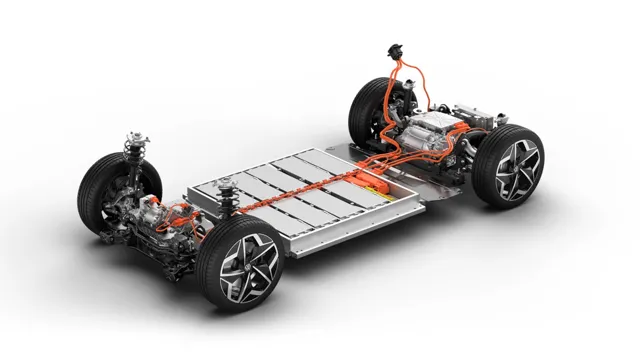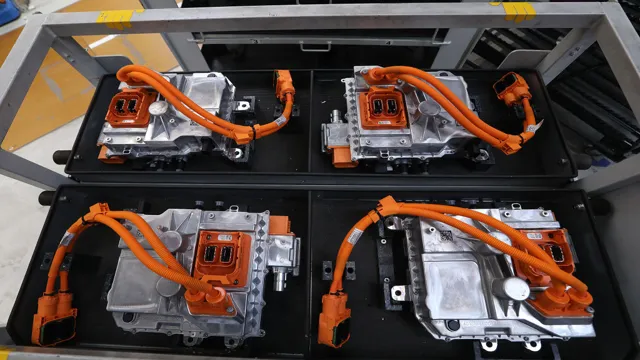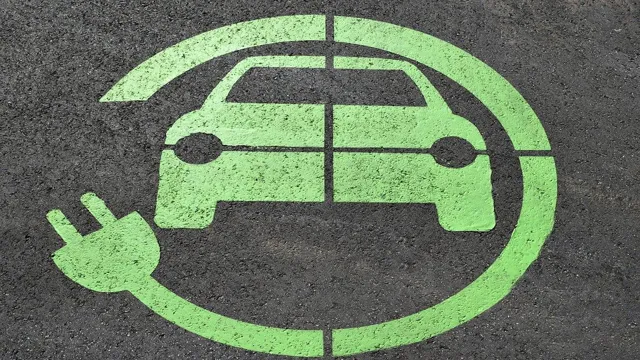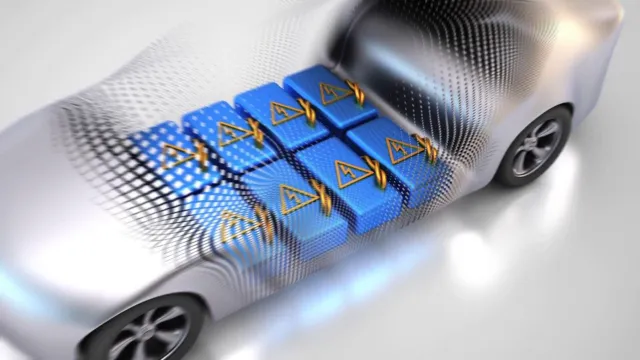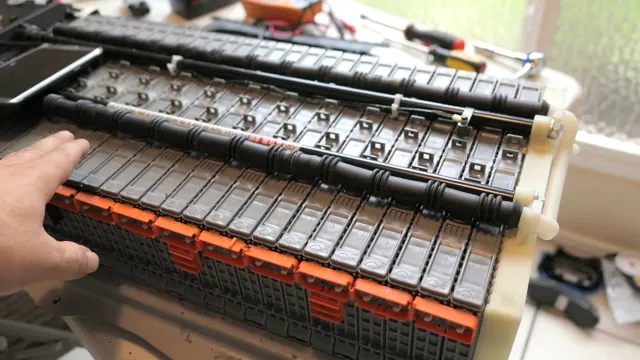Lithium: The Power Source Behind Electric Car Batteries Explained
Electric cars are becoming increasingly popular as people become more aware of the impact of traditional gasoline-powered vehicles on the environment. As a result, one of the biggest considerations when purchasing an electric car is the type of battery it uses. Specifically, whether the car uses a lithium battery or not is often a topic of debate among consumers.
Lithium batteries are known for being lightweight and long-lasting, but are they the best option for electric cars? In this blog, we will explore the benefits and drawbacks of lithium batteries and alternative options for electric car batteries.
The Basics of Electric Car Batteries
Yes, electric car batteries are commonly made from lithium-ion cells. These batteries are made up of a series of individual cells that each house a positive and negative electrode, known as a cathode and anode. When charged with electricity, lithium ions move from the cathode to the anode, creating a flow of electricity.
Compared to other materials, such as lead or nickel, lithium is more energy-dense and lightweight, making it an ideal option for electric car batteries. Additionally, lithium-ion batteries have a longer lifespan and can tolerate a higher number of charge and discharge cycles before losing capacity. While other types of batteries, such as nickel-metal hydride or solid-state, are also being developed for use in electric vehicles, lithium-ion remains the most prevalent and widely used option on the market today.
What Powers Electric Cars?
Electric cars run on electrical power, which comes from rechargeable batteries that are generally made of lithium-ion cells. These batteries work by storing electrical energy which is then used to power the car’s electric motor. Most electric cars have battery packs placed beneath the floor of the car, which enables better weight distribution.
The lithium-ion battery cells used in electric cars have come a long way and are more efficient and long-lasting than ever before. Additionally, advancements in technology have led to batteries that can be charged quickly and easily, often using fast charging stations. Though still not as widely available as petrol or diesel, electric cars are becoming increasingly popular, and with continued technological advancements, they are set to be the future of the automobile industry.
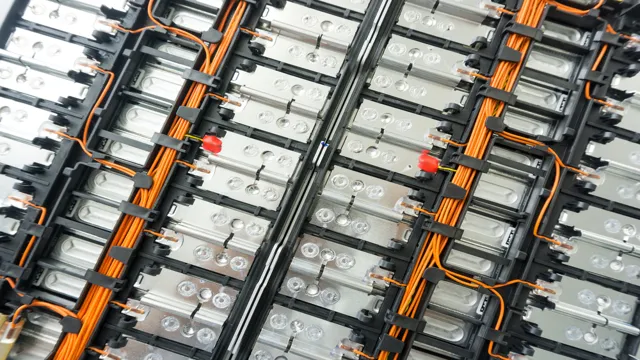
Types of Electric Car Batteries
Electric car batteries come in a variety of types, but they all share the same basic function of powering the car’s electric motor. Lithium-ion batteries are the most common type used in electric vehicles, and they provide a higher energy density compared to other batteries. This means they can store more energy in a smaller space, making them ideal for use in electric cars.
Nickel-metal hydride batteries are another type of battery that are sometimes used in electric vehicles, though they are not as efficient as lithium-ion batteries. These batteries have a lower energy density and are generally heavier, which can affect the car’s performance. Modern electric cars also use solid-state batteries, which are still in the early stages of development.
These batteries have the potential to offer even higher energy densities than lithium-ion batteries, while also being safer and more durable. As technology advances, it’s likely that even more types of electric car batteries will become available in the future.
Lithium-ion Batteries: The Most Common Type in Electric Cars
Yes, electric car batteries are commonly made from lithium-ion, which are considered to be the most popular type in the market. These batteries are a type of rechargeable battery made with a mixture of lithium-ion and carbon electrodes that are suspended in an electrolyte fluid, usually made of a salt solution. Compared to other types of batteries, lithium-ion batteries are more energy-dense, which means that they can store more power and are smaller and lighter, making them the preferred choice for electric vehicles.
They also have lower self-discharge rates, which allows them to hold a charge for longer periods of time. Additionally, they are environmentally friendly, as they do not contain harmful chemicals that can pollute the environment. With their high energy density, lithium-ion batteries have revolutionized the EV industry, enabling electric cars to travel long distances, and have become the go-to choice for automakers worldwide.
Advantages of Lithium-ion Batteries
Lithium-ion batteries have become the go-to for many electric car manufacturers due to their numerous advantages. They are lighter, have a higher energy density, and can be charged and discharged efficiently. The energy capacity of lithium-ion batteries has also increased over time, which means longer ranges for electric vehicles.
Lithium-ion batteries have a longer lifespan than other types of batteries, reducing the need for frequent replacements. Additionally, they are easier to maintain and have a lower self-discharge rate. While there are other types of batteries available, such as nickel-metal hydride and lead-acid batteries, lithium-ion batteries are the most commonly used type in electric cars.
Their benefits are undeniable and make electric cars a more viable and practical option for environmentally conscious consumers.
Disadvantages of Lithium-ion Batteries
When it comes to electric cars, lithium-ion batteries are the most common type used to power them. While they offer a variety of advantages over other types of batteries, such as high energy density and low maintenance requirements, there are also some disadvantages to consider. One major disadvantage is their tendency to overheat and catch fire or explode if not properly handled or maintained.
This risk is something manufacturers must take into account when designing and producing electric cars. Additionally, the raw materials required for lithium-ion batteries, such as lithium and cobalt, are not as abundant as some other materials used in batteries, leading to potential supply chain issues and higher costs. Despite these drawbacks, lithium-ion batteries remain the most popular choice for electric cars due to their overall efficiency and effectiveness.
Lithium-ion Battery Recycling
Lithium-ion batteries are the most commonly used type in electric cars. They are known for their high energy density, long life, and ability to hold a charge. However, the environmental impact of these batteries is a growing concern.
As the demand for electric cars increases, so does the need for proper disposal and recycling of lithium-ion batteries. The recycling process involves retrieving valuable materials such as cobalt, nickel, and lithium from the used batteries. This not only conserves natural resources but also reduces the carbon footprint associated with the production of new batteries.
It’s essential to take steps to ensure the safe and effective disposal of lithium-ion batteries to protect the environment and public health. By recycling these batteries, we can reduce waste and contribute to a sustainable future. So, don’t just throw away your old lithium-ion batteries, recycle them!
Other Types of Electric Car Batteries
Yes, while lithium-ion batteries are the most common type of electric car battery, they are not the only type. Some other types of electric car batteries include nickel-metal hydride (NiMH) batteries and lead-acid batteries. NiMH batteries are widely used in hybrid electric vehicles (HEVs) and have been used in electric vehicles (EVs) in the past.
Lead-acid batteries, which have been around for over a century, are used in some low-speed EVs and golf carts. However, lithium-ion batteries remain the preferred choice for most EV manufacturers due to their high energy density, which allows EVs to travel further on a single charge. In addition, lithium-ion batteries are more reliable and have a longer lifespan compared to other types of batteries.
Therefore, while there are other types of electric car batteries available, lithium-ion batteries remain the most widely used and preferred option for EVs.
Nickel-Metal Hydride Batteries
Electric car batteries come in various types, and Nickel-Metal Hydride (NiMH) batteries are one such type. Unlike Lithium-ion batteries used in modern electric cars, Nickel-Metal Hydride batteries have a lower energy density, which means they are not as efficient as Lithium-ion batteries. However, they are considered a safer and more environmentally friendly alternative.
They are also more affordable, making them a popular choice for hybrid cars. Another advantage of using NiMH batteries is that they do not require complex cooling systems, unlike Lithium-ion batteries, which tend to get hot during charging. However, the drawback is that they take longer to recharge and are less durable than Lithium-ion batteries.
Regardless, electric car manufacturers continue to explore new battery technologies in their quest to create more sustainable and efficient vehicles.
Solid-State Batteries
Solid-State Batteries While lithium-ion batteries have become the standard for electric cars, there are other types of batteries being developed that could offer even greater performance. One of these types is solid-state batteries. Unlike lithium-ion batteries which use a liquid electrolyte, solid-state batteries rely on a solid electrolyte.
This can lead to several benefits including increased energy density, faster charging times, and improved safety. Solid-state batteries are also less vulnerable to thermal runaway, where a failure in the battery can cause it to rapidly overheat and potentially explode. While these batteries are still in the research and development phase, they hold great promise for the future of electric vehicles.
With continued investment and research, solid-state batteries could change the way we power our cars and reduce the environmental impact of transportation.
Conclusion: Lithium-ion Batteries Dominate the Market
In conclusion, it’s safe to say that electric car batteries are indeed made from lithium. And just like lithium, electric cars are powerful, efficient, and provide us with a spark of innovation towards a more sustainable future. So the next time you see an electric car driving on the road, remember that its battery is powered by the element that has revolutionized the way we think about transportation.
Lithium truly is the driving force behind the electric car revolution.”
FAQs
What material are electric car batteries typically made from?
The majority of electric car batteries are made from lithium-ion cells.
Is lithium the only material used in electric car batteries?
While lithium is the most common material used in electric car batteries, some manufacturers are exploring other options such as nickel, cobalt, and manganese.
Why is lithium a popular choice for electric car batteries?
Lithium is a popular choice for electric car batteries because it is lightweight, has a high energy density, and can be charged and discharged multiple times without significant degradation.
How environmentally friendly are lithium-ion batteries?
While the production of lithium-ion batteries can have negative environmental impacts, such as the extraction and processing of lithium, they are still considered more environmentally friendly than traditional fossil fuel-powered cars in terms of their overall lifecycle emissions.
